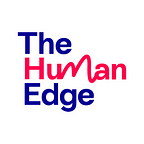Alumni Spotlight. Dr. Said Sabri
Mentor, Oxfam OPTI Mentoring Programme.
“Mentoring is incubating the mentee in his emotions, his personal and professional needs, driving him into a better life,” Said Sabri.
Dr. Said Sabri is a mentor engaged in the Oxfam OPTI mentoring programme, a programme established to promote the economic contribution of small-scale agricultural producers, empowering them to create more income generating opportunities for themselves and their communities.
Dr. Said Sabri is a mentor engaged in the Oxfam OPTI mentoring programme, a programme established to promote the economic contribution of small-scale agricultural producers, empowering them to create more income generating opportunities for themselves and their communities.
He has a PhD in SME Development, is a lecturer, and has his own consultancy that supports entrepreneurs and start-ups through coaching and mentoring.
Based in Jerusalem, Dr. Said joined the mentoring programme to learn and inline with his interests, support entrepreneurs, this time in the agricultural sector as was required within this particular mentoring programme.
“I’m always eager to learn and look for opportunities to educate myself and learn new skills. Joining this programme gave me an opportunity to refine my coaching and mentoring skills using Mowgli Mentoring’s methodology. The training conducted in Ramallah was quite interesting. It provided reinforcement on the value of mentoring and exposed me to new concepts, specifically around differentiating coaching from mentoring, and what many perceive as mentoring.”
Like many of our participants, the year 2020 has presented many challenges for the mentor. For starters, he’s had to adopt an online delivery model within his practice and lectures. “I’ve only recently felt the impact of the Covid-19 pandemic. Earlier in the year, we were not severely affected as we were quick to move our lectures and services online. However as of September, we have seen a drastic decline in demand for our services. I would say we’re operating at less than 80 percent of our usual business, with less demand for business consulting and training,” shares Dr. Said.
Realizing that mentors similarly go through the same challenges as the mentees they support, earlier in the year we developed these tools to support self-mentoring during these uncertain times.
One of the key areas we focus on within our mentor training programmes is developing growth and solutions-based mindset. Mentors are encouraged to support their mentees to reflect on who they want to be and what they need to do to get there. It’s therefore not uncommon to find mentors using the same support principles to support their personal journey in times like these where all are affected. “In this period, I have learned to prioritize better. As I support my mentee to focus on what is key to her growth and development, I’m also learning to focus on the same.”
Looking into the new year, Dr. Said shares that he feels more prepared than ever to tackle the inevitable challenges.
“The difference is that we now know we’re entering an equally challenging year. While we may not have been aware of what awaited us in 2020, we now have insights into how the coming year will look like and that allows us to think through how we can cope better. I’m looking at 2021 as the year of more challenges. It’s a year to think about what we need to do. We need to think about competencies to develop to support our growth in 2021 and the future.” To this effect, the charismatic leader is looking to further develop his online lectures into what he terms as a garage of ideas.
“I want to offer some of my services for free, to whoever may need them. I’m going to dedicate 1–2 hours to anyone who is in need of free coaching and mentoring. I’m also thinking of focusing on women and youth who I consider as marginalized in my country and in need of support.”
A recurring question we’ve received over the past few months from mentors is how they can continue supporting mentees when they have their own fears around what’s happening in the world right now. Dr. Said shares his thoughts on this, “Regardless of the challenges, people are in need of a boost of hope. Support is needed without looking into technical matters. I encourage my fellow mentors to be present. Sometimes that is all our mentees need from us, not solutions. People are in need of mentors, now more than ever. However, the mentors have to be qualified, and well trained.”
We also asked Dr. Said how he sees mentoring supporting individuals whether leaders or mentees during these uncertain times, his response; “Mentorship provides some form of psychological support. Though not at a professional level, mentoring is mostly needed to support people to get through the shock, and quickly find solutions that drive them into the direction they need to take.”
“We don’t know what’s going to happen next but we have seen what has happened in the past, and can learn from that. We can predict things like lockdowns that may make it more difficult for us to interact and do business. It’s therefore a critical time for all of us to develop support systems, and be of support to others.”
Dr. Said encourages individuals to build their resilience by reflecting on what they can change, and develop confidence to take on this period with a growth mindset.
